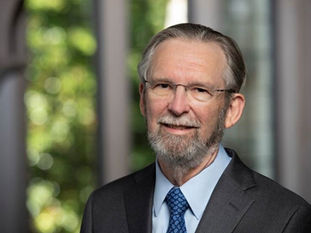Exploring Medical Ethics in Healthcare

How Non-consent Changes the Narrative
Nov 24, 2024
4 min read
0
10
0
In my previous blog post, I simplified the situation by focusing on whether euthanasia could be ethically justified in a scenario where full consent was given. This approach established a baseline for the discussion by temporarily setting aside more complex issues. I argued that before diving into the nuances of the dilemma, it is important to consider euthanasia in its most straightforward form: as a decision made with informed consent, devoid of external ethical complications.
Now, it is time to examine the situation in its full complexity, considering the nuances at play. In the case of Five Days at Memorial, none of the patients who were euthanized had been able to provide informed consent—or any consent at all. Some of these patients did not even have Do Not Resuscitate (DNR) orders signed before their deaths.

This exact concern was discussed in class: the possibility that euthanasia could one day be performed without consent. One of the fears is that such practices could potentially lead to the eradication of populations deemed “unworthy” or “unfit” by society. Initially, I dismissed this as implausible. I believed that the legalization of physician-assisted suicide would enhance individual autonomy, empowering people to make informed decisions about their quality of life. In my view, there would always be a robust legal framework in place to ensure that medical professionals were held accountable, preventing any abuse of euthanasia laws. (To read more about the checks and balances here in the United States, read here: https://www.cnn.com/2014/11/26/us/physician-assisted-suicide-fast-facts/index.html) I imagined a system with strict checks and balances, requiring patients to navigate multiple safeguards before being able to access euthanasia.

However, reading Five Days at Memorial challenged these assumptions. It raised an unsettling question: what happens when those checks and balances disappear? In the chaos after Hurricane Katrina, there were no legal systems or institutional oversight in place. The doctors and nurses at Memorial Medical Center operated under extreme duress—scared, sleep-deprived, and physically exhausted after working nearly non-stop for five days. In that context, consent ceased to matter. Autonomy over one’s body vanished. Decisions were made by overwhelmed healthcare providers who lacked the capacity to navigate ethical complexity under such dire circumstances.
This shift in perspective underscores how easily consent can be disregarded in emergency situations, turning euthanasia into something that strips patients of their autonomy.
Turning again to a Biblical perspective, we can revisit the passages discussed in the last post. However, it is critical to note that the examples of suicide and euthanasia in the Bible—such as Abimelek’s request in Judges 9—were consensual acts. This adds a layer of complexity when we evaluate euthanasia through a biblical lens. While euthanasia might already be seen as morally dubious or similar to murder in scripture, the lack of consent in a situation like that at Memorial intensifies its moral standings. Without consent, it becomes much harder to reconcile such actions with the Bible’s teachings on human dignity, the sanctity of life, and God’s sovereignty. I believe that in the straightforward view of euthanasia, it would be very difficult to argue that it equates to murder, at least not for the physician. Murder of the self would be easier to argue, but all the physician is responsible for is carrying out the wishes of the patient, (an interesting article on some of the background surrounding euthanasia https://baylor.primo.exlibrisgroup.com/permalink/01BUL_INST/122ppak/cdi_proquest_journals_2513039540). In Five Days at Memorial, I think that it is much easier to argue that Dr. Pou murdered the patients she gave the cocktail to. I do believe that if the patients were able to make informed consent, this is the route they would have chosen, but unfortunately that is not the level of clarity that is offered within this situation. (To learn more about murder in the Bible, click here: https://www.biblestudytools.com/dictionary/murder/)

In the Bible, there is not much uncertainty surrounding murder. It is very explicitly stated in Exodus 20 that no follower of Christ should murder. If we do end up taking what happened at Memorial as murder, is it really that simple anyways? The answer is, of course, no. Just like there are plenty of cases of murder being shamed in the Bible, there are also many exceptions and contradictions to this as well. The very first ethical issue that was analyzed for class was whether or not violence was justified ever within the context of the Bible. I do not think that there was any violence whatsoever taking place when these patients were euthanized, but we can apply some of the broader contexts to the situation of Memorial Hospital (again, I define violence as an aggressive act that was done with the intent to cause suffering). Reinhold Niebhur (pictured above) argues that violence is sometimes a necessary tool used by Christians to uphold justice in a world that is tainted by sin, and that it is unrealistic to assume that Christians will be able to live a pacifist lifestyle. He even goes as far to argue that it is heresy as a Christian to standby and watch as an injustice is happening. I believe that there are strong parallels between this and the book. The patients that were dying were not actively committing any injustice towards anybody. They were, however, unintentionally taking away resources from a group of patients that were more likely to survive the disaster. In its own way, would it be just to allocate the resources away from the patients that were more likely to survive? Diving into this further, if the dying patients were not given the resources to help them live comfortably in their last few days, would it really be just to allow them to stay alive in a constant state of suffering? Even if we decide on the idea that what happened was murder, I think there are multiple different ways to justify it.




